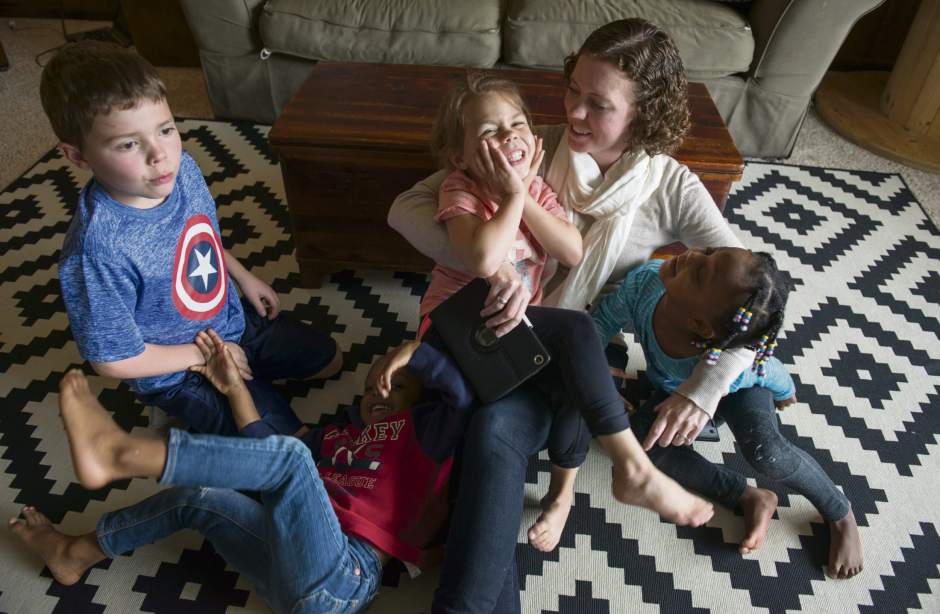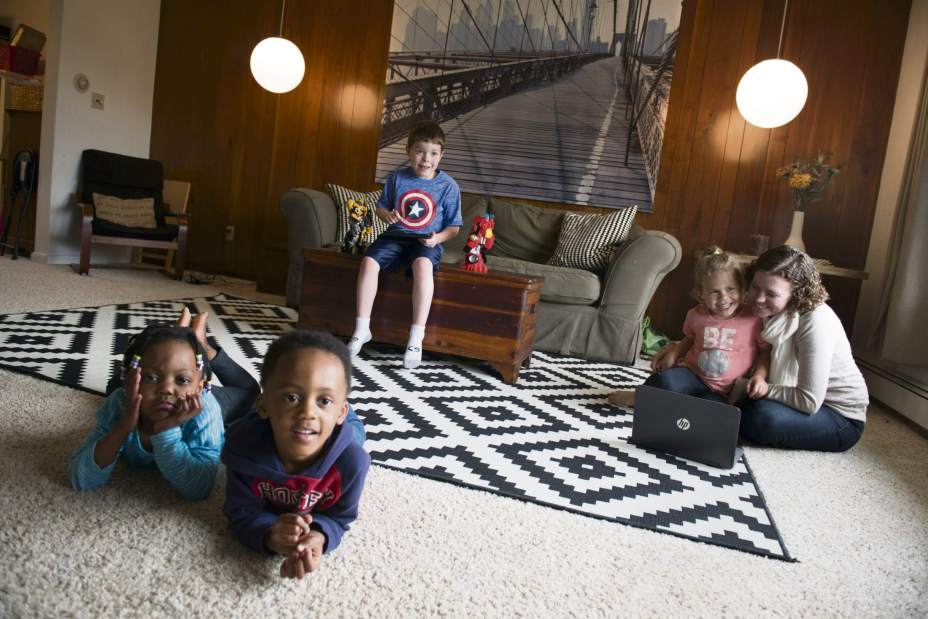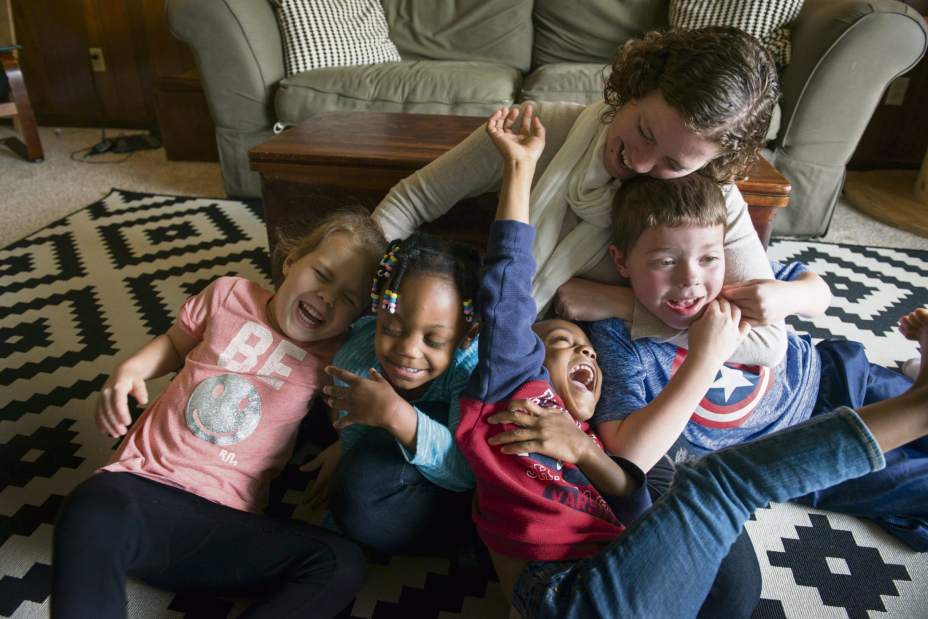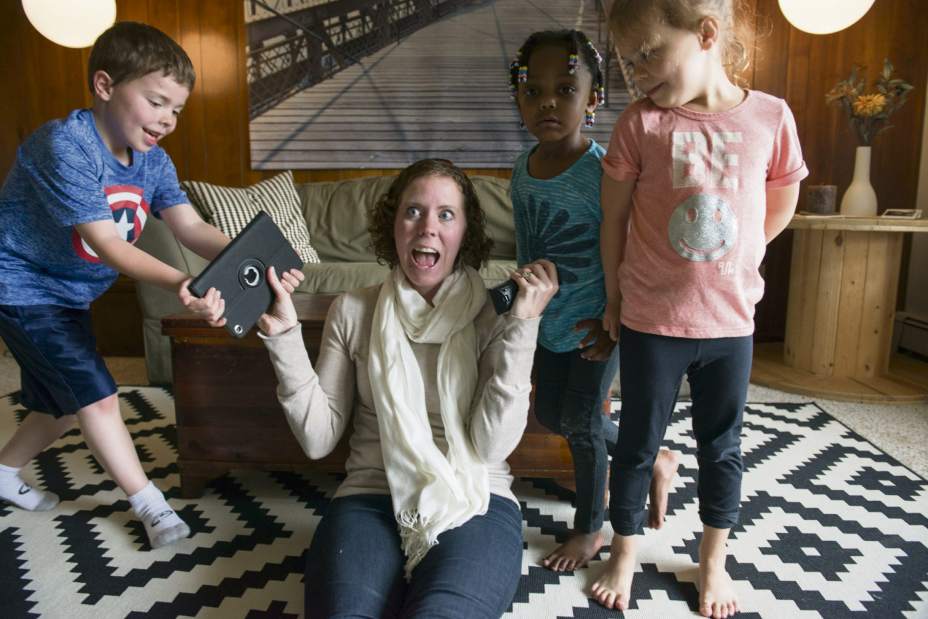More work for mom: Technology, social media present new challenges
Kelly Hughes and her husband are going to make sure their kids spend more time — not less — on the computer this summer.
Her 7-year-old son loves Minecraft, a popular video game he purchased as an app. Her 3-year-old daughter uses another app on an iPad to trace shapes — the same one her son used in occupational therapy to improve his handwriting.
Each of her four children is adept with an iPad and an iPhone. They have so much experience with mobile devices that they need to practice using a standard mouse and typing on a keyboard, said Hughes, 35, of Bon Air.
“I think at this point in our society, it's a necessary life skill,” said Hughes, who writes the Pittsburgh Momtourage blog.
This Mother's Day celebrates a generation of moms who are raising children in a world awash in technology and social media. Child development experts say they don't know the long-term impact of technology immersion, only that it's up to parents to control how and when children get a smartphone or sign on to Facebook.
“There's no question that they're being exposed,” said Brian Primack, director of the University of Pittsburgh Center for Research on Media, Technology and Health. “The question is, we don't really know what that exposure is doing to the brain.”
According to a 2013 report from Common Sense Media, a San Francisco-based nonprofit that advocates for safe use of media and technology among children, about 75 percent of kids have access to some sort of “smart” device. About 72 percent of children 8 or younger have used a mobile device to use apps, play games or watch videos, the report found.
Smart devices and fancy graphics can make children expect instant gratification, Primack said.
“If the brain gets used to that kind of speed, then the real world is going to seem very, very dull,” he said.
According to a survey Common Sense Media released last week, 50 percent of teenagers reported they feel addicted to their mobile devices and 78 percent of teens check them regularly for texts, social network messages and other notifications.
Primack cautioned parents not to expose children to social media too early, but he acknowledged they need to learn eventually.
Hughes limits her kids' use of the iPad to 15 to 30 minutes a day, and is more likely to grant access after they spend time outside.
About a year ago, Hughes and her husband decided to eliminate electronic devices for two weeks.
“I can't even tell you how different their behavior was, their focus, their creativity,” she said.
Julie Parker, 33, of McCandless didn't get a cellphone until she was in college.
None of her young children has cellphones, but they do get to spend time on the iPad or iPod for 30 minutes to an hour a day, she said.
“It's just a whole different generation,” she said.
It's up to parents to decide when they want to allow their child to start using the devices, said Tanya Baronti, digital media and learning project manager for the Fred Rogers Center.
She recommends parents play games and use the iPad or iPhone with children so they can monitor what they are doing and engage with the child. In addition to games, devices such as iPads and iPhones let children video chat with their grandparents or take virtual field trips in school, Baronti said.
“It can connect children to things that they otherwise wouldn't have experiences with,” she said.
Primack said there are drawbacks.
“I think the biggest one is the opportunity cost, the fact that young people have become glued to the device instead of having positive social relationships with peers and family,” he said.
Playing a sport or a musical instrument and doing creative projects like a craft are important to a child's mental and social development, Primack said. Some apps and games can lead to addictive behaviors, prompting tantrums or withdrawal-like symptoms, he said.
Parker and her husband don't mind if their kids watch videos or play games on the iPad, but they encourage them to play outside.
“I just feel like there are so many other things that they can do to learn,” Parker said.
Baronti, who leads professional development classes for parent groups, preschool teachers and child care center workers about technology, said devices aren't meant to replace books, crayons or dress-up clothes.
“There's a place everywhere for that,” she said. “It does come down to parents making decisions for their children.”
Elizabeth Behrman is a Tribune-Review staff writer. Reach her at 412-320-7886 or Lbehrman@tribweb.com.




